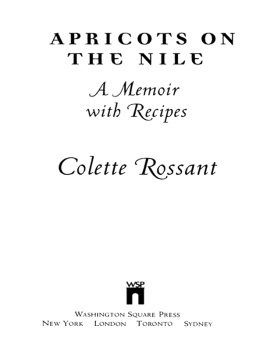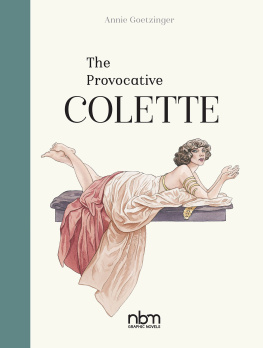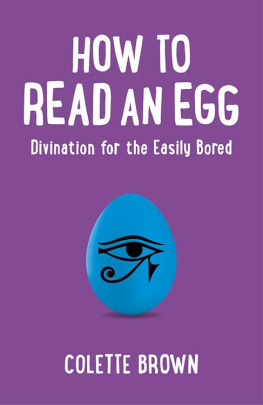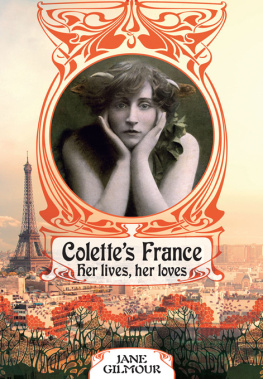Colette Gale - Unmasqued
Here you can read online Colette Gale - Unmasqued full text of the book (entire story) in english for free. Download pdf and epub, get meaning, cover and reviews about this ebook. genre: Romance novel. Description of the work, (preface) as well as reviews are available. Best literature library LitArk.com created for fans of good reading and offers a wide selection of genres:
Romance novel
Science fiction
Adventure
Detective
Science
History
Home and family
Prose
Art
Politics
Computer
Non-fiction
Religion
Business
Children
Humor
Choose a favorite category and find really read worthwhile books. Enjoy immersion in the world of imagination, feel the emotions of the characters or learn something new for yourself, make an fascinating discovery.

- Book:Unmasqued
- Author:
- Genre:
- Rating:5 / 5
- Favourites:Add to favourites
- Your mark:
- 100
- 1
- 2
- 3
- 4
- 5
Unmasqued: summary, description and annotation
We offer to read an annotation, description, summary or preface (depends on what the author of the book "Unmasqued" wrote himself). If you haven't found the necessary information about the book — write in the comments, we will try to find it.
Unmasqued — read online for free the complete book (whole text) full work
Below is the text of the book, divided by pages. System saving the place of the last page read, allows you to conveniently read the book "Unmasqued" online for free, without having to search again every time where you left off. Put a bookmark, and you can go to the page where you finished reading at any time.
Font size:
Interval:
Bookmark:
Colette Gale
Unmasqued
Parisians are always at a masked ball.
Gaston Leroux, The Phantom of the OperaMany versions of the Paris Opera House and its alleged "Phantom of the Opera" have been told in the last century and a half. Gaston Leroux's tale has often been considered the most accurate because it was based on official reports filed in Paris at the time of the events in question.
Hollywood, in its turn, has interpreted the book in different ways, taking dramatic license where and when the producers and directors wished. The most famous version, the wildly successful stage musical by Andrew Lloyd Webber, subsequently adapted for film, promoted yet a different version of the story.
It was not until this author received the personal diaries of Miss Christine Daae (and validated their authenticity) that the true story became known: the story that appears in this volume.
Initially, this author's intention was to keep the diaries private in deference to Miss Daae's family, and that of the Chagny brothers, but upon further consideration, I came to feel that in all fairness to Christine and Erik, the truth could no longer be obscured.
For decades, as the romantic, horrific legend of the Phantom of the Opera has been told, Erik has been portrayed as a murderous villain, Christine as the helpless, manipulated ingenue, and Vicomte Raoul de Chagny as the brave, love-struck swain.
In fact, the actual events of those months at the Opera House are quite different from the official version promoted by Monsieur Leroux and the Parisian officials (most likely, in this author's opinion, in order to protect the reputation, and influence, of the Chagny family).
Much of what is purported to be fact by these sources apparently came from a mysterious individual identified only as "the Persian," who claimed to be an intimate of the Opera Ghost. In fact, in all research and in the documents that make up the basis of this authors studies, there is no such person or entity either described or alluded to. It can only be construed, then, that this mysterious personage was merely a figment of the imagination of Leroux and the Parisian officials, created in their attempt to clear all blame from the Chagny brothers.
Thus, the story that appears in this volume is taken directly, and in all explicit detail, from the diaries and journals of Christine Daae. I have also included details from her personal letters from the ballet mistress Madame Maude Giry, with whom Christine apparently developed a deep friendship after the events described herein.
This, then, is the entire story of Christine, Erik, and the Chagny brothers-the truth, once and for all.
Colette Gale
August 2007
Part I: The Phantom of the Opera
Chapter One
Paris, 1887
Christine closed her eyes as the heavy, sumptuous silk billowed down over her laced form. She'd never dreamed she'd wear a costume of such finery, with the glitter of so many gems and the gushing fall of lace from every edge and flounce. The silk was pale rose pink and the jewels a rainbow of crimsons, fuchsias, and peridot green. Lace of all tones of white-pure snow, blue white, eggshell, aged ivory-dripped from the sleeves and brushed the floor. Tiny rosettes of pink and red silk grew in the holes of the lace pattern.
The costume was heavy and smelled like Carlotta's cloying rose perfume, and when it surrounded her, it clogged Christine's nose and caused her eyes to water. The aroma was not the pure scent of roses sent by her Ange de Musique, the scent that she gladly buried her nose within and drew deeply from. The smell from Carlotta's discarded costume was rank and overpowering, just as Carlotta herself was.
Yet, and yet Christine would wear it, for tonight she was to take the prima donna's place in more than her gown. She would sing the aria of Juliet, from Gounod's Romeo et Juliette, in front of the entire Opera House because Carlotta, the Opera House's star, had stormed off in a great snit earlier today.
During rehearsal, one of the backdrops had fallen from its moorings a bit too close to the very costume Christine was now donning, but which at that time had been worn by the diva Carlotta. She had just had the pleasure of meeting the Opera House's two new managers, Messieurs Moncharmin and Richard, when the wooden pole clattered to the stage. It brushed the edges of her gown, landing in a loud thump at her feet.
Carlotta bolted away as quickly as her generous form would allow as the length of heavy canvas tumbled to the ground, her bosoms and jowls bouncing and her outraged screams echoing in the sudden silence. She clapped her hand to her chest, sending off a puff of white powder from her bosom. "How dare it! How dare it!" she shrieked, yanking off her tall, feathery headdress and tossing it at one of the costumiers. "La Carlotta is ill! La Carlotta shall not sing!"
She stalked off the stage and disappeared in a froth of skirts and feathers, the new managers staring after her in shock.
Horrified whispers skittered around the stage and pit in her wake.
"It is the Opera Ghost!"
"He has done it again."
"She could have been killed!"
"It was he who stole my powder puff," hissed one of the dancers.
"He moves like a shadow," added another.
"An evil creature he is," chortled Joseph Buquet, the chief stagehand, bugging his eyes out to frighten the young dancers. "His eyes are like coals! His teeth blackened and rotted. His face is stretched tight, and yellow, and his black clothes hang from his bones. He will hunt you down and eat you for dinner!"
Madame Giry, the mistress of the corps de ballet, silenced the gossip with a sharp snap of her fingers and the glare of her jet-bead eyes. "Do not speak of what you do not know," she ordered, looking sharply at Buquet, who had not troubled to keep his voice to a whisper. "Now, to work! You also, Sorelli. You might be our star dancer, but you must still focus on your practice!"
She directed the dancers behind the steel curtain that separated the ballet foyer from the rest of the stage. Mairie, the lead choreographer, bade the performers to continue their practice. If whispers and undertones continued, Madame Giry did not hear them or, at least, did not acknowledge them.
It was surely a most unfortunate occurrence to happen on the very day the two new managers took over the reins of the famous Paris Opera House. The outgoing managers, Debienne and Poligny, had been respected and feared by the performers. But these new managers, Messieurs Richard and Moncharmin, who came from the trash-removal business, looked merely wide-eyed and full of consternation.
"Opera Ghost?" Christine, who had been standing near enough to hear their conversation, overheard Monsieur Moncharmin ask his companion. "Debienne and Poligny mentioned nothing about such a thing when they turned over this Opera House! What can be meant by this?"
Monsieur Richard, the taller and more dapper of the two men, tucked his hands in his waistcoat pockets and tipped onto his toes, murmuring in response to his companion, "Likely it is nothing but some bizarre legend, Armand. We are now in the theater business! They have many superstitions and stories and we shall learn of them as we progress. I'm sure it shall prove to be quite entertaining, in more ways than one." He chuckled indulgently, then sobered. "More importantly, how shall we replace La Carlotta for tonight's gala performance? There is no one else who can sing with such grace."
"We cannot cancel the performance," Moncharmin muttered. "Chagny shall be attending and everything must be in order."
Then before Christine could blink an eye, Madame Giry had whisked over from her management of the dancers and pulled her forward, thrusting her in front of the managers. "Miss Daae will be a more-than-adequate replacement for La Carlotta this evening. Her singing has improved enormously in the last three months."
Font size:
Interval:
Bookmark:
Similar books «Unmasqued»
Look at similar books to Unmasqued. We have selected literature similar in name and meaning in the hope of providing readers with more options to find new, interesting, not yet read works.
Discussion, reviews of the book Unmasqued and just readers' own opinions. Leave your comments, write what you think about the work, its meaning or the main characters. Specify what exactly you liked and what you didn't like, and why you think so.







